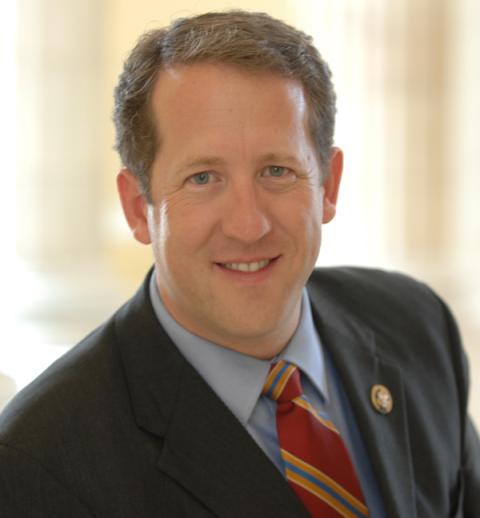![]()

By Rep. Adrian Smith
This week, I traveled to France with a delegation of my congressional colleagues, led by House Majority Leader Steve Scalise (R-LA), to honor the 80th anniversary of the Allied invasion on D-Day on the battlefields where 150,000 young men from the United States and our allies commenced the largest invasion by sea in the history of the world. We participated in commemorative events alongside veterans of the Second World War and their family members, current U.S. servicemembers, leaders from Allied nations, and local civilians from Normandy.
I was particularly moved by our visit to a military cemetery located near Omaha Beach which contains the gravesites of more than 9,000 Americans, including Nebraskans, killed in action on D-Day and in subsequent combat in Normandy. The young men who, against the odds and concerns for their own safety, stormed the beaches and jumped from military transport planes eight decades ago were in the earliest years of adulthood. Yet through their courage, they achieved a monumental victory for the free world. We owe an unpayable debt to their heroism.
The historical significance of D-Day is far from lost on the French people. Knowing both the meaning of liberation from Nazi occupation and the cost paid by Allied forces, they continue to have a profound gratitude and maintain a commitment to preserving the memory of the American soldiers who risked everything on June 6, 1944, to change the course of history.
In his message to the troops on the eve of the battle, Supreme Allied Commander General Dwight Eisenhower credited support provided by the American people in strengthening their hopes to turn the tide of the war. He noted, “Our Home Fronts have given us an overwhelming superiority in weapons and munitions of war, and placed at our disposal great reserves of trained fighting men.”
The North Platte Canteen was one of the largest volunteer efforts during the war, providing more than 6 million servicemen and women who passed through North Platte by rail with meals, baked goods, and Good Life hospitality. To pay tribute to the individuals and communities who donated time, food, and other items to serve the troops at the Canteen, Senator Fischer and I have introduced legislation with our colleagues in the Nebraska delegation to award the Congressional Gold Medal to Canteen volunteers and benefactors.
In total, more than 16 million Americans answered the call of duty during World War II, and it is because of their brave and heroic service we remember them as the Greatest Generation. The need to preserve and share the memory of their patriotic devotion is a sacred responsibility for us all. My grandfather’s service as a Navy Seabee in the Second World War inspired me to public service, and this trip to the beaches of Normandy has deepened my belief young Americans are capable of great things.
With each passing year, the number of World War II veterans who remain with us grows fewer. If we are faithful to tell the powerful stories of their bravery and Europe’s liberation, the hearts of coming generations cannot help but be strengthened with the resolve to preserve freedom and live for what truly matters.
